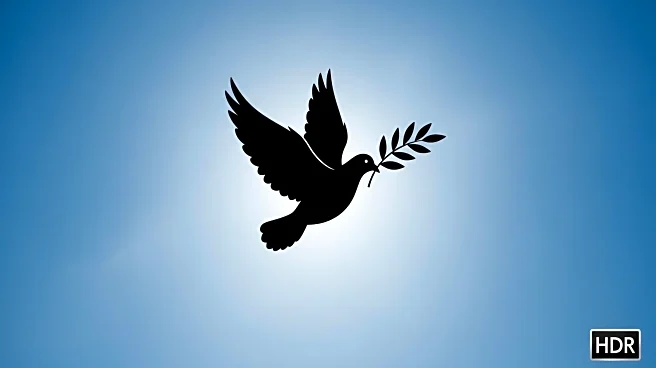What's Happening?
A ceasefire between Israel and Hamas has been implemented in Gaza, following the Israeli Cabinet's approval of a truce agreement. The ceasefire began at noon local time, with Israeli troops withdrawing to pre-agreed positions. The agreement includes the exchange of hostages for Palestinian prisoners. The ceasefire marks a significant step towards ending a two-year conflict that has resulted in tens of thousands of Palestinian deaths and widespread destruction in Gaza. Despite the ceasefire, questions remain about the disarmament of Hamas and the future governance of Gaza.
Why It's Important?
The ceasefire is crucial in halting the ongoing violence that has destabilized the Middle East and caused significant humanitarian crises. The agreement could pave the way for further negotiations on the disarmament of Hamas and the reconstruction of Gaza. The involvement of international stakeholders, including the United States, Egypt, Turkey, and Qatar, highlights the global interest in resolving the conflict. The ceasefire also impacts regional stability and could influence future diplomatic relations in the Middle East.
What's Next?
The next steps involve the release of hostages and Palestinian prisoners, expected to begin soon. The ceasefire agreement includes provisions for an international force to oversee security in Gaza, with the U.S. planning to send troops as part of this effort. The reconstruction of Gaza and the potential role of the Palestinian Authority in governance are also part of the broader plan. However, the disarmament of Hamas and the establishment of a lasting peace remain uncertain.
Beyond the Headlines
The ceasefire agreement raises ethical and legal questions about the treatment of hostages and prisoners. The long-term implications for Gaza's governance and the potential for a Palestinian state are significant. The involvement of international forces in Gaza could alter the power dynamics in the region and influence future peace negotiations.








